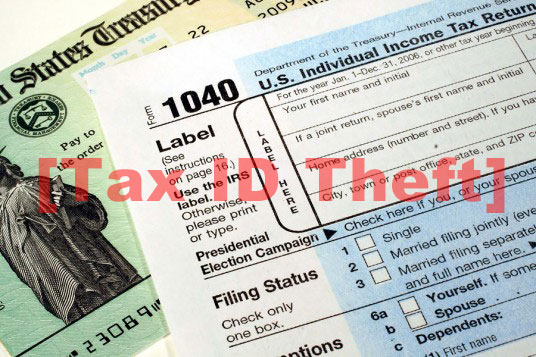Income Tax
IRS Workers Busted for ID Theft, Filing Bogus Returns
Who can you trust with sensitive personal information like your Social Security number (SSN) and tax return data? Evidently, not even the people who used to work at the IRS. In a new case, a former IRS employee was sentenced on August 26 to two years ...
Sep. 01, 2015

Who can you trust with sensitive personal information like your Social Security number (SSN) and tax return data? Evidently, not even the people who used to work at the IRS. In a new case, a former IRS employee was sentenced on August 26 to two years in prison in connection with an ID theft scheme. His crime? He used personal information stolen from taxpayers to file fraudulent returns and pocket the refund money.
Kenneth Goheen, who worked for the IRS as a Tax Examining Technician in Texas, has admitted to illegally obtaining Tax Identification Numbers (TINs) from victims. He used the TINs to file more than 50 fraudulent tax returns from 2013 to 2015 and received refunds of over $120,000 from those fraudulent returns.
Goheen has been ordered to forfeit to fork over close to $16,000 in his bank accounts and pay the remaining $104,000 in restitution to the government. The judge also ordered him to be placed on supervised release for three years after completing his prison term.
This is hardly the first time an IRS employee has been involved in a high-profile ID theft. According to FBI reports in 2014, Virinana Hernandez, a former IRS worker in California, conspired with three others to obtain personal information of taxpayers though various nefarious means, including opening credit cards in victims’ names or authorizing themselves as users on existing accounts. The ID theft ring absconded with $1.2 million over two years. And there’s a long list of similar cases.
Understandably, clients are increasingly hesitant to provide SSNs and other personal information to anyone these days, including their CPAs and professional tax return preparers, not to mention the folks working at the IRS. Take steps to ensure the people using your services that you can be trusted. Explain to clients the methods your firm uses to safeguard their data, including use of firewalls and other security measures.
To further strengthen your relationships with clients, take on a more active role in protecting their personal information. Here are some practical ways you may be able to assist them:
- Monitor credit reports from the three major credit bureaus – Equifax, Experian and TransUnion — that might indicate ID theft.
- Tell clients to mask SSNs where possible (e.g., on laminated insurance cards).
- Have clients contact you immediately instead of clinking on links allegedly sent by the IRS. Report all illegal activities to the proper authorities.
- Instruct clients to keep SSNs in a safe location and only release them to businesses when it is essential. Just because someone asks for it doesn’t mean you have to give it.
- Advise to clients to shred any documents with personal information once they are no longer needed.
- Provide security measures for all tax returns, including keeping a locked filing cabinet or vault for prior paper returns and using and updating firewalls, anti-spam and anti-virus software programs and security patches. Change passwords for secured accounts regularly. Finally, advise clients to do the same in their homes and businesses.
Don’t be passive about getting involved in ID theft protection. This will help you build a greater level of trust and your clients will appreciate your efforts.
